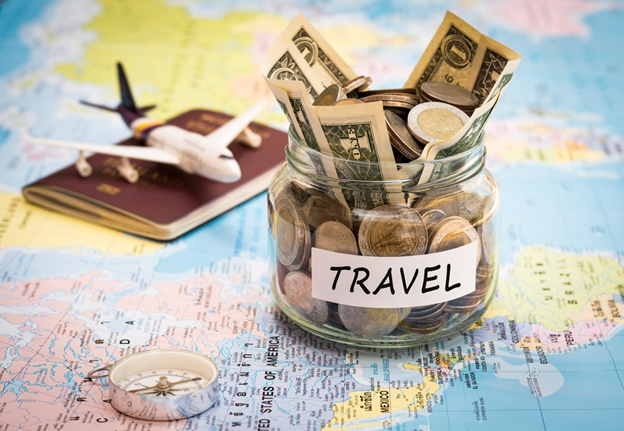- WikiMiles Analyzer
-
Frequent Flyers Programs
- Aer Lingus AerClub
- AeroMexico Club Premier
- Aeroplan
- Air New Zealand AirPoints
- Alaska Mileage Plan
- American AAdvantage
- ANA Mileage Club
- Asiana Club
- Avianca Lifemiles
- British Airways Executive Club
- Cathay Pacific Asia Miles
- Copa ConnectMiles
- Delta Skymiles
- El Al Matmid Club
- Emirates Skywards
- Etihad Guest
- Eva Air Infinity Mileagelands
- Finnair Plus
- Flying Blue
- HawaiianMiles
-
Airlines
- Aer Lingus
- Aeroflot
- Aerolineas Argentinas
- AeroMexico
- Air Astana
- Air Canada
- Air China
- Air Europa
- Air France
- Air India
- Air Malta
- Air New Zealand
- Air Tahiti Nui
- Airlink
- Alaska Airlines
- All Nippon Airways
- American Airlines
- Asiana Airlines
- Austrian Airlines
- Avianca
- Bangkok Airways
- British Airways
- Brussels Airlines
- Cathay Pacific
- China Airlines
- China Eastern
- China Southern
- Copa Airlines
- Croatia Airlines
- Czech Airlines
- Delta
- EgyptAir
- EL AL
- Emirates
- Ethiopian Airlines
- Etihad Airways
- Eva Air
- Fiji Airways
- Finnair
- Garuda Indonesia
- GOL
- Hawaiian Airlines
- Iberia
- IcelandAir
- Japan Airlines
The Art of Financial Freedom: Mastering the Travel Budget that Works

Imagine standing on a sun-drenched beach, feeling the warm breeze on your skin, or strolling through a historic city as the aroma of fresh pastries fills the air.
The dream of travel is intoxicating—until reality checks in with an invoice.
We are pretty sure the last thing you want is to cut your adventure short due to poor financial planning.
Fortunately, budgeting for travel isn’t about restricting fun—it’s about maximizing experiences without the looming stress of money woes.
So, whether you’re gearing up for a short getaway or planning a full-time adventure, mastering your travel budget is the key to unlocking the world without breaking the bank!

Photo from Heymondo
Step 1: Define Your Travel Vision
Every great trip starts with a clear vision. Are you picturing…
… backpacking through Southeast Asia?
… a luxury escape in Europe?
… a road trip across the U.S.?
… backpacking through Southeast Asia?
Always remember that the type of trip you take directly influences your budget. That is why it is important to define the following:
-
Destination(s): Different locations come with vastly different costs. Southeast Asia, for example, is much cheaper than Western Europe.
-
Travel Duration: Are you planning a one-week escape or a six-month odyssey? The length of your trip will determine how much you need.
-
Travel Style: Are you a budget traveler, a mid-range explorer, or a luxury enthusiast? Identifying your style helps set realistic expectations for expenses.
Step 2: Research and Estimate Costs
A well-researched budget is the backbone of successful travel planning. Break down your expected expenses into these main categories:
Transportation
-
Use fare comparison tools like Skyscanner or Google Flights to find deals. Consider budget airlines, flexible dates, and alternative airports to save money.
-
Research public transport options like metro passes, bike rentals, or ride-sharing apps. In some cities, walking is a viable way to explore and save money.
Accommodation
-
Compare prices on platforms like Booking.com, Airbnb, and Hostelworld.
-
Consider alternatives like house-sitting, couch-surfing, or staying with friends to cut costs.
-
If staying long-term, monthly rentals often provide better rates than nightly stays.
Food & Dining
-
Eating out for every meal adds up quickly. Balance your spending by grocery shopping and cooking occasionally.
-
Street food and local markets offer delicious and affordable dining experiences.
-
Lunch specials and happy hours can help you save at restaurants.
Activities & Entertainment
-
Prioritize must-do experiences and find free attractions, such as city tours, hikes, or museum discount days.
-
Use travel passes or city cards for bundled attraction discounts.
-
Look for local events and festivals that offer unique cultural experiences without extra costs.
Travel Insurance & Emergency Funds
-
Invest in a reliable travel insurance policy to cover unexpected medical expenses, trip cancellations, or lost luggage.
-
Set aside an emergency fund for unforeseen costs like hospital visits, stolen items, or last-minute itinerary changes.
Step 3: Track and Adjust Your Spending
Creating a budget is one thing—sticking to it is another. Use expense tracking apps like Trail Wallet, Mint, or BudgetBakers to monitor your daily spending.
Also, keep these budgeting principles in mind:
-
Set Daily Limits: Divide your total budget by the number of days you’ll be traveling to create a realistic daily spending cap.
-
Plan for Splurges: Allocate funds for occasional treats, like a fine-dining experience or a bucket-list excursion.
-
Review and Adjust: If you overspend one day, compensate by spending less the next day.
Step 4: Stretch Your Budget Without Sacrificing Fun
Saving money doesn’t mean missing out on memorable experiences. Here are a few ways to travel smarter:
-
Slow Travel: Spending more time in fewer locations cuts transportation costs and allows for better deals on accommodations.
-
Off-Peak Travel: Visiting destinations during their off-season means cheaper flights, lower hotel rates, and fewer crowds.
-
Work or Volunteer Abroad: Programs like Workaway, WWOOF, or teaching English abroad provide free accommodation and sometimes meals.
-
Loyalty Programs & Travel Rewards: Accumulate airline miles, hotel points, and credit card rewards to reduce expenses.
Final Thoughts: Travel Far When You Travel Smart
A realistic travel budget isn’t about limiting yourself but about giving yourself the freedom to explore without financial anxiety.
By researching costs, tracking expenses, and making strategic decisions, you can experience the world on your terms.
What’s more?
With a little planning and creativity, your dream destinations are more accessible than you think!
So, what are you waiting for?
Properly allocate your travel budget, pack your bags, and get ready for an unforgettable journey!
Choose where you are going from and to by selecting the respective zones. There are two ways to choose your origin and destination - you can either select the zones they fall into on the map or by clicking on the bars above the map and entering the city name or airport code into the search fields.
- Choose one of the three point combination options which is applicable to you. If you don't have any miles in any airline accounts you can leave those fields blank.
- Input all of the different points you have on the credit cards you are planning to use. You can enter as many as you like. If you have multiple cards on one name from the same bank you can combine and enter the total amount of points between all of your cards.
- Enter all the miles you have in airlines frequent flyer programs on the left hand side following the airlines name.
- Once you input the information, click on the analyze button at the bottom of the page.
- The analyzer will offer you the optimal transfer combinations to explore as well as pros and cons of each.
- Review analyzer recommendations. Total number of miles is not the only consideration you should take into account. Analyzer will give you additional information about each program to make the right decision. You can also download results to a pdf and even send them to others if you like.
- Proceed to check availability with respective airlines. Do not transfer any miles until you confirm the desired option is available on the airline’s website. Note the transfer time and hold the reservation if possible before transferring any miles.
- Remember all transfers are final as you would not be able to send the points back to your credit card. If your trip is cancelled your miles will go back to the respective airline account.
- Transferring points to airline's frequent flyer programs is not the only way to obtain the award ticket. You can also redeem the points through your credit card directly by using the Book Travel option. You can find out more by checking out our Credit card reward tab on Wikimiles home page.
- WikiMiles Crew is always here to answer any questions. For an additional fee we can also assist you with the bookings. Use the Contact us section to reach out to us.
Please enter your email to download this chart!
Note! Your email might be added to future newsletter!
Thank you!


